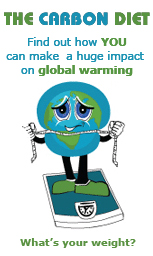Ask Ronit
 I Like Your Ponytail, A Story About Commitment
I Like Your Ponytail, A Story About Commitment
“I like your ponytail.” I said in a playful manner. “Ponytail?” he repeated in a thick French accent. There and then began the most extraordinary odyssey of my life.…
Avoid 90% of the Pesticides in Food, by Avoiding 12 Foods
Why should you care about pesticides in your food?For starters there may be as many as twenty pesticides on a single piece of fruit you eat.…
Dear Mrs. Black,It was January 1967 when this 11 year-old, frightened, little Israeli girl walked into your classroom for the first time. I had only arrived in the country two weeks before.…
With sex all around us, oozing out of our televisions, theaters, magazines, fashion, on the streets, one would think we are the most sexually informed, open and comfortable nation on the planet.”…
I’m sure by now you all have noticed the ongoing meltdown in the mortgage industry. The cause of this whole mess is a little bit complicated, rooted in both the structure of the mortgage industry, and human nature. I’ll try to explain both factors here in layman’s terms.…
Breaking old habits; Creating new Ones
We are mostly habitual beings. Webster defines habit as an acquired mode of behavior that has become nearly or completely involuntary.…
Navigation
Are We Eating Our Oceans To Death?
By Jim Egan
Collapse of most wild seafood populations by 2048
A recent report in the journal Science estimates that if our current overfishing and pollution of the ocean continues, almost all seafood populations will collapse by 2048. A collapse of a fishery occurs when over 90% of a population is lost making it very difficult to recover, prone to extinction due to the small population sizes and very difficult to harvest economically. The report was created by well-respected scientists and economists, so it is not another “the sky is falling” scare by well-intentioned but scientifically naïve individuals. Populations of large, desirable fish like tuna, marlin and swordfish have already declined by 90% since the 1950s. Currently 62% of all fish stocks are in need of management due to increased demand from population increases and better technology that can catch almost every fish in an area. Is the collapse of wild seafood stocks inevitable? What would it mean for the planet? How can you help stop the collapse? How do you eat fish that is healthy for you and for our planet?
Is collapse of the fisheries inevitable?
No, but it is up to us as consumers and voters to reverse the trends. The fishing industry, for the most part, has historically resisted almost every effort made to make it more sustainable. The Fishing Industry is worth 80 billion dollars a year and employs 200 million people, some of which are self-employed in subsistence fishing. The industry usually does not support quotas until the fish stock has already collapsed, it fights attempts to create no-fishing areas where fish can breed and supply the fished areas, it fights limits on fishing boat numbers, it fights bans on fishing practices like long-line fishing, trawl bags and drift nets that ultimately destroy the resource the industry needs to sustain itself. It resists any regulation as a restraint on their ability to make a profit today, ignoring that their future profits will be lost without regulation.
Big consequences for us and the rest of the planet!
Humans consume over a hundred million tons of fish and fish oil every year. One billion people, mostly poor, rely on fish as their main source of protein. Most will go hungry when wild fish become very scarce. Not only are the desirable fish being impacted, large amounts of non-target fish are caught and killed in the miles long nets being used by industrial fishing boats. The non-target fish is called “by-catch” and poor fishing techniques such as those used in the Gulf of Mexico result in five pounds of non-target fish to be destroyed for every pound that is caught. Dolphins and sea turtles are also commonly killed in the industrial nets big enough to hold twelve 747s! Buying dolphin-safe and sea-turtle safe products encourage fishing practices that avoid their mortality.
Save the fish with your vote!
If you don’t vote or commonly vote for candidates that you know little or nothing about you are wasting the most powerful tool you have. You don’t have to become a political wiz to be an educated voter, take advantage of experts you trust to help give you more information on the candidates you vote for. In the U.S., the League of Conservation Voters puts out a scorecard rating a politicians support for conservation, visit: www.lcv.org A call to your local chapter of Sierra Club or other environmental group will also give you insights into local candidates. Educated voters elect educated politicians who will resist the money and influence that industries use to avoid critical regulations. In the U.S., the Magnuson Fishery Conservation Act requires essential fish habitat be protected and fishing stocks be rebuilt. A new version of the act was recently passed, politicians who voted against it voted against the future of fishing on the planet.
Save the fish and yourself by sustainable shopping!
Purchase the right fish in a supermarket or at a restaurant and you not only will encourage sustainable practices that will keep that type of fish available, you will also reduce your intake of harmful pollutants like mercury. Look for FishWiseTM labeling which helps identify the healthiest choices. Just because seafood is farm-raised does not make it a healthy or an environmentally-friendly choice necessarily. Farm-raised seafood can be high in mercury, antibiotics and hormones or raised using sewage or bioengineered fish. Farmed seafood is often done in pens in lakes or in the ocean and contribute pollution to natural waters, shrimp ponds in Asia often displace mangroves which are important fish habitat. Farm-raised predator fish like sea bass and salmon eat 5 pounds of wild fish for every pound they grow, so wild fish stocks can be impacted by eating farm-raised fish. As our wild fish populations are depleted, farm-raised fish will be the only alternative. Encouraging good farming practices by your purchases is also critical. Visit www.factoryfarm.org for more information on farm-raised seafood.
Free Guides to healthy seafood
Audubon, Environmental Defense and Moneterey Bay Aquarium all produce free Pocket-sized guides to seafood that is healthy for you and for the environment. Download them at www.sustainablefishery.org
Examples of good choices for healthy seafood:
Stone, Snow & Dungeness Crab, Sardines, King and Spanish Mackeral, Striped mullet, Alaskan salmon, US and Australia Spiny/Rock lobster, Pacific Halibut, Farmed catfish, Farmed oysters and clams, Farmed stripe bass, Farmed rainbow trout, Troll/pole-caught tuna (no long nets used)
Examples of the worst choices for healthy seafood:
Cod, King Crab, Flounder, Grouper, Swordfish, Bluefin Tuna, Farmed or imported shrimp, Atlantic Halibut, Atlantic Cod, Sharks, Wild-caught sturgeon, Caribbean Spiny/Rock Lobster, and Red snapper
Save the fish by changing your habits!
80% of global ocean pollution comes from human activities on land. Runoff from cities, farms and roads is the largest source of pollution to the ocean. You can help the ocean and your local water bodies by limiting your use of lawn chemicals of any kind.
Fish, a healthy choice
Fish is a great source of lean protein and omega-3 fatty acids. It is a healthy choice for your diet and if you choose well, your choice of fish will be healthy for the planet as well.

 My Hero
My Hero We Are Sexual Beings
We Are Sexual Beings The Banking Implosion
The Banking Implosion















ronit, i loved ' my hero' and jodan i am crying hearing your music and reading about the fish by 2040 ! i was glad i could get it through google i have to tell people about it it is such worthy work
love and may all good things happen for you and the earth
mariana
This article makes me think of lightning bugs. When I was young we used to say "Look a lightning bug" as we spotted them all and we'd catch them, probably over a hundred on my block alone, every summer. Now when I say to my children, "Look a lightning bug!" it is more in awe since it is usually the only one you see in the night, and most nights I don't see any .
We all thought it was an inexhaustible supply. We never thought for a moment we had the power to influence their numbers much less wipe them out.
Now I try to teach my kids to appreciate what they have and to show them how much they are a part of it and how much they do have control over it -- for good and bad. I think it is because I understand that fact now having seen it play out, but also partly in atonement for what I may have contributed to.
Penelitian terbaru menunjukkan bahwa kedua latihan latihan beban dan dampak, seperti lari, jogging dan melompat, mungkin memiliki kualitas mereka sendiri yang berbeda.Suami saya telah memulai sistem gizi hampir sebulan yang lalu dan telah kehilangan hampir kentangkita 10 kilogram.Penelitian telah menunjukkan bahwa kita secara otomatis membesar-besarkan porsi ketika kita snack di depan televisi, terutama pada makanan yang kita cenderung berlebihan saja seperti lurus-keluar-dari kantong keripik kentang, donat bubuk, mentega popcorn. kentangkita
Post new comment